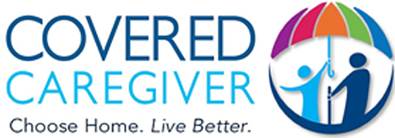 26 Feb 2015
26 Feb 2015
Jewish Guilt And The Senior Home
There’s a constant in the Jewish home, a habit of sorts and by way of tradition, known of course as Jewish Guilt. Some may argue it is scientific, a genetic disposition carried by ancestors for generations and generations. It is the spiritual notion your mother can converse with your inner voice, persuade and convince. Much like a lawyer arguing in feat, no matter how far-reaching the claim, you ponder and are swayed by the illogical powers that be.
You’ve performed well, behaved appropriately, perhaps even sacrificed for the greater good, yet regardless of the efforts your mother is there to point out that it’s just not good enough.
When you were 10 and earned a 98% on your math exam your mother asked what happened to the other 2%?
When you were 25 graduating law school and starting your own firm, your mother questioned, “how come you haven’t placed your unadjusted brother in an endlessly temporary desk job yet?”
And, finally, there was that time in your life when you stood up to your mother and told her you’re an adult! This pointless argument usually happens to Jewish men around the age of 45.
At some point shortly thereafter, though, your new found bravado faces a fork in the road because this is also a time parents are becoming older adults and standing up to them has no purpose since the priorities are shifting. Slowly you watch as they lose the independence they too fought with their parents for. Slowly they begin to depend on you, and not the other way around.
Now imagine a balance in your life not revolving around the constant care of your parent, but where help you can bring on allows you to focus on quality within your relationship.
The life-long brewing of Jewish guilt will dictate it is you who needs to care for your parent. But, think of a more sensible perspective like hiring a caregiver.
Today, family caregivers place an extraordinary burden on themselves with countless hours providing care for their parent; hours spent away from work, burning themselves out in a never-ending cycle of kids, karate, career, and caregiving.
It’s the sandwich generation, stuck in the middle of caring for your kids and your parents, working all the while. You are not experienced in this field, but you do your best – you seek occasional help from a housekeeper or a neighbor and justify your exhaustion before night’s end that this is what a good son or daughter does for mom.
And, one day it will dawn on you that your exhaustion is not providing optimal care for mom. You still have children to raise and a mortgage and bills to pay. You’ve taken all your vacation days, called in for too many sick days and cancelled personal appointments for your own health.
At its worst extent, when the sad day comes when the family member passes, along with mourning and honoring their parent, many overworked and tired adult children are showered with relief and an opportunity to spend time on oneself realizing the endless to-do list is suddenly gone. This is not exactly the way their mom should be respected at that very moment.
A June 2010 National Alliance for Caregiving (NAC) study found that a woman who cares for a loved one will lose $142,693 in wages for leaving the work force early because of caregiving responsibilities. Moreover, estimating lost pensions, retirement funds, and benefits for that time period, the average woman will forfeit $324,044 in total. Referring to a 2006 NAC study, the Center for Disease Control and Prevention emphasizes, “53% of family caregivers who said their health had gotten worse due to caregiving also said the decline in their health has affected their ability to provide care.”
In-home care services, aka caregiving, is a wonderful solution to allowing what’s best for your loved one. Caregivers are experienced, perform tasks that are demanding – and best of all – allow mom or dad to age successfully at home. That way, when you are with your parents they are at their best. And you are, too.
What true value is there to perform sensitive or intimate tasks such assisting with toileting, and bathing? This is a skill set which many senior parents would prefer to be done by trained workers who can show them respect and grace and preserve well-deserved dignity during a time of so much loss of dignity.
Senior Home Care services provide non-medical comprehensive care services, ranging from companionship to personalized specialty care covering the broad spectrum of senior living. Whether the aim is social interaction to enhance the health, happiness and quality of life of seniors; or personal care required for maintaining a high level of independence; or specialty care for debilitating diseases such as dementia and post-fall care, there is no guilt in giving your aging parent the right care they need.
Because when you were 10 years old you conceded in bewilderment at the 2% comment only to be accepted into the college of your choice years later thanks to mom’s always pushing you that extra step.
And when you were 25 years old in a successful firm you took your brother under your wing, making sure he didn’t fall in with the wrong crowd, and he has always thanked you for his first job.
Finally, when you stood up to your mother at 45, you also stood up for her and gave her the right care she knew she could count on you for when she first planted you with that Jewish guilt.
BY: Ohad J, Pearl, MPH
Senior
COMMENTS: No Comments

